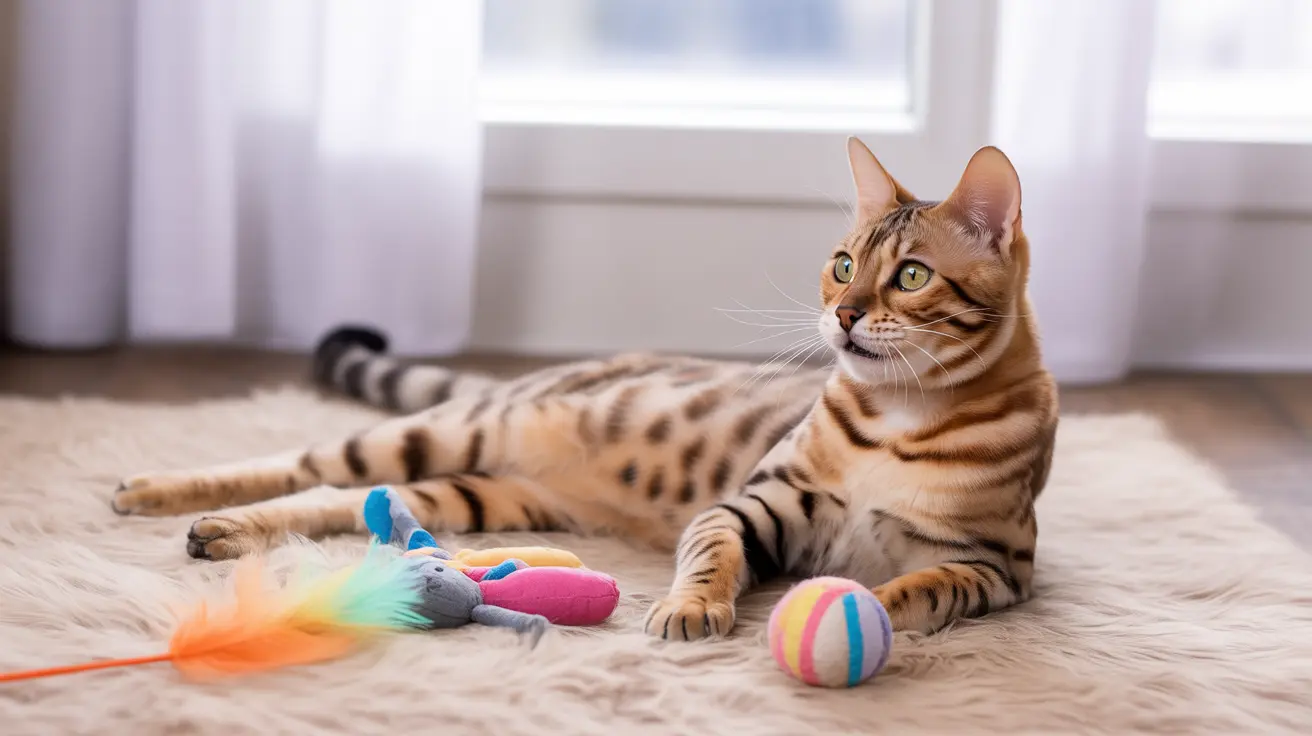If you've noticed your cat panting after playing, you might be wondering whether this behavior is normal or cause for concern. While cats don't typically pant like dogs do, there are circumstances where panting can occur – and it's crucial to know the difference between normal post-play panting and signs that warrant veterinary attention.
In this comprehensive guide, we'll explore why cats pant after physical activity, when this behavior is normal, and when it might signal an underlying health issue requiring immediate medical attention.
Normal Panting After Play: What You Should Know
Occasional, brief panting following intense play sessions can be normal, particularly in kittens and highly energetic cats. Unlike dogs, who regularly pant to cool down, cats typically use other methods to regulate their body temperature. However, short episodes of panting may occur when a cat has been particularly active.
Normal post-play panting should resolve within a minute or two, and your cat should otherwise appear healthy and alert. This type of panting is most common in younger cats who may have overexerted themselves during an exciting play session.
Warning Signs That Require Veterinary Attention
While brief panting after vigorous play might be normal, certain signs indicate a need for immediate veterinary care:
- Panting that persists for more than a few minutes
- Labored breathing or respiratory distress
- Blue or pale gums
- Lethargy or collapse
- Excessive drooling
- Coughing or wheezing
Medical Conditions Associated with Post-Play Panting
Heart Disease
Cats with underlying heart conditions may show excessive panting after minimal exertion. Hypertrophic cardiomyopathy, the most common feline heart disease, can cause fluid buildup in the lungs, leading to breathing difficulties during or after activity.
Respiratory Issues
Several respiratory conditions can cause abnormal panting after play, including:
- Feline asthma
- Upper respiratory infections
- Pneumonia
- Pleural effusion
Other Medical Concerns
Additional health issues that may cause post-play panting include:
- Anemia
- Heartworm disease
- Hyperthyroidism
- Pain from injury or illness
- Heat exhaustion
Prevention and Management
To help prevent problematic panting and ensure your cat's safety during playtime:
- Keep play sessions moderate in length and intensity
- Ensure proper ventilation and temperature control
- Provide fresh water at all times
- Monitor your cat's breathing and energy levels
- Schedule regular veterinary check-ups
Frequently Asked Questions
Is it normal for cats to pant after playing or exercising?
While not as common as in dogs, brief panting after intense play can be normal in cats, especially kittens. However, it should resolve within a minute or two. Prolonged or frequent panting is not normal and requires veterinary attention.
When should I be worried if my cat keeps panting after playtime?
Be concerned if your cat's panting lasts longer than a few minutes, occurs with minimal exertion, or is accompanied by other symptoms like lethargy, drooling, or blue gums. These signs warrant immediate veterinary care.
What medical conditions can cause my cat to pant excessively after activity?
Several conditions can cause excessive panting, including heart disease, respiratory issues like asthma, anemia, hyperthyroidism, and pain. Any unusual panting should be evaluated by a veterinarian to rule out serious health concerns.
How can I help my cat cool down if they start panting after being outside?
Move your cat to a cool, quiet area, ensure access to fresh water, and monitor their breathing. If panting persists or your cat shows signs of distress, seek veterinary care immediately.
Can stress or anxiety cause my cat to pant after playing?
Yes, stress and anxiety can cause panting in cats, even during or after play. If you notice this pattern, consider whether environmental factors or changes in routine might be causing stress, and consult with your veterinarian for management strategies.






